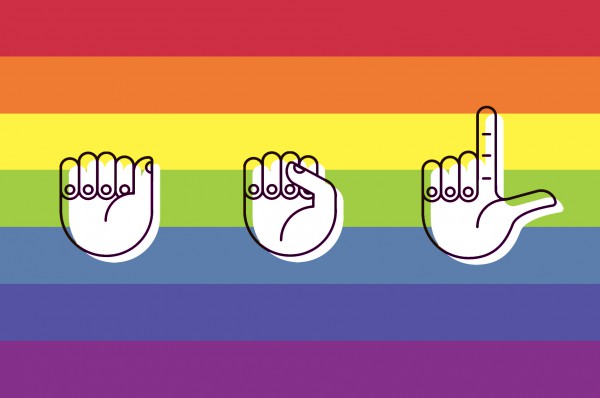Combating audism and ableism by learning American Sign Language
For most people, ordering a cup of coffee at Tim Hortons is a relatively trivial affair, but For Nicka Sage, vice president of the Ontario Rainbow Alliance of the Deaf (ORAD) who identifies as culturally Deaf, this ordinary experience is quite different.
“It is always a surprise when a worker at Tim Hortons knows sign, and I can just sign out my order my normal way,” said Sage. “I believe in the normalization of sign language. I am currently training to become an ASL teacher because I feel that I want to make connections between signing and non-signing folks to facilitate communication.”
They believes that if a large number of people have the knowledge and ability to use sign language, they can break down the barriers that exist between hearing and Deaf people.
ORAD is a not-for-profit organization created in late 2001, with the purpose of hosting social events bringing the Deaf-queer community together, to socialize and to network with each other.
In 2007, the group became affiliated with the Rainbow Alliance of the Deaf (RAD), “whose purpose is to to establish and maintain a society of Deaf GLBT to encourage and promote the educational, economical, and social welfare to foster fellowship; to defend our rights; and advance our interests as Deaf GLBT citizens concerning social justice,” according to the ORAD website.
Over the years ORAD has expanded its membership umbrella organization to include Deaf, hard of hearing, and hearing members, and has also reached out to post-secondary institutions like George Brown College (GBC).
This organization has become a part of the college’s Deaf adult upgrading program as well as their interpreting program, where they discuss queer and trans* issues.
ORAD has also partnered with the college in the past, taking part in their Positive Space workshops; the college has also provided sponsorships for ORAD education outreach and workshops.
Having these initiatives at the GBC is good but Sage believes that there could be a greater involvement at the college when it comes to combating “audism” and “ableism,” which are forms of discrimination and prejudice used towards the Deaf community.
“Audism is the daily oppression that Deaf folks experience in daily functions,” said Sage, who believes that one of the ways to combat audism is by ensuring the greater inclusion of Deaf signing people.
As Sage describes it, this inclusion can be made possible with the collaboration of students, staff, interpreters and the GBC community.
Even if people are not Deaf, Sage encourages them to learn sign language, and says, “if you are not interested in learning sign language, ask yourself ‘why?’ ”
CORRECTION: In a previous version of this article Nicka Sage was misidentified and a incorrect personal pronoun was used. The Dialog regrets the errors.


